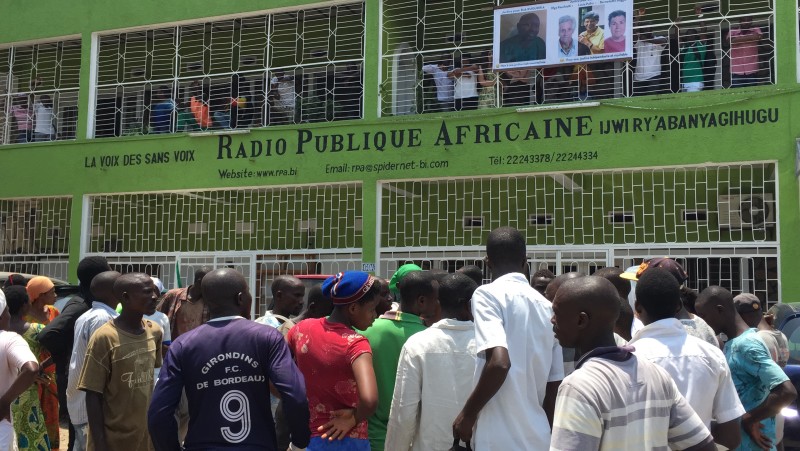
On April 26, Burundian President Pierre Nkurunziza announced that he would seek a third term in violation of the Arusha Peace Agreement and widely viewed to be contrary to Burundi’s constitution. The announcement, which had been feared for months, was met with widespread protests. Two weeks later, an attempted coup by a faction of the military failed to gain control of the country. In the aftermath of these events, the risk of violence in Burundi is at its highest point in many years.
I traveled to Burundi with a Humanity United assessment team in February to investigate early warning signs of instability. After meeting with a variety of local actors, we returned extremely concerned about the risk of violence in the run-up to the presidential and parliamentary elections. Now, after three weeks of protests, an attempted coup, and a very uncertain path forward, my concern has turned to alarm by the events that have unfolded and the potential for further violence.
Ever since Burundi achieved independence from Belgium in 1962, the country has experienced various episodes of mass and revenge killings between Hutu and Tutsi ethnic groups. The bloodshed reached its peak during a 10-year civil war, during which over 300,000 people were killed. In 2002, a successful but tenuous peace was established through the groundbreaking Arusha Accords and, for the first time, ethnic differences appeared to be put to one side.
When we were in Burundi, people from all levels of society expressed their fear that political violence would challenge some of the hard won gains that came as a result of the peace deal. They talked of the potential for ethnic tensions to re-emerge and could not exclude the possibility that a political crisis could devolve into an ethnic crisis over time.
Our visit came on the back of a worrying set of recent events. The government had taken an increasingly authoritarian approach, cracking down on independent media and civil society – including the arrests of Pierre-Claver Mbonimba, a human rights activist, and Bob Rugurika, a popular radio journalist. There have been credible reports that the government and, to a lesser extent, the opposition were actively arming the youth wings of their parties. At the end of 2014, a massacre took place in Cibitoke in which at least 47 people were killed, an event that underscored the increasing potential for larger scale atrocities within Burundi.
After learning more about what was at stake in Burundi, Humanity United decided to launch a pilot project aimed at mitigating violence around the elections and reducing the risk of further escalation of the situation. We have come together with our partners in Burundi – Peace Direct, Human Rights Watch, and Search for Common Ground – and they are working tirelessly to document and respond to the instability that we have witnessed over the past several weeks. We are supporting journalists on the ground, and Humanity United’s policy team is advocating for a strong international response to the unfolding crisis in Burundi. Sadly, the risk for violence is unlikely to go away any time soon.
Time and again, the world has failed to prevent the preventable even when specific early warning signs emerged. In the past two years alone, we have seen tragic atrocities in South Sudan and the Central African Republic, despite clear indications that widespread violence was possible and imminent. Humanity United was founded to contribute to a more peaceful, less violent world. We believe that early and concerted action in response to specific indications of risk can play a critical role in preventing violence. In Burundi, together with others we saw the signals and responded early. The actions taken in the coming days, weeks, and months will determine if that response was enough.
It is too early to say how this crisis will end, but during this period of uncertainty we stand with the people of Burundi as they demand a more peaceful future for their country. After years of violence, Burundians deserve peace.